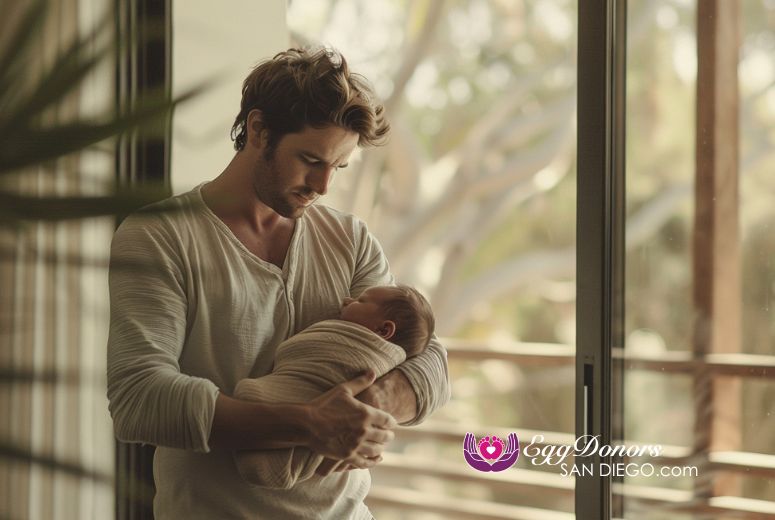Selecting an egg donor is a significant step in the fertility journey. It involves not only medical and genetic considerations but also personal preferences and emotional factors. At EggDonorsSanDiego.com, a premier in-house egg donor program led by Dr. Minoos Hosseinzadeh, intended parents receive personalized guidance to ensure they find the ideal match for their family.
“Choosing an egg donor is an intimate decision, and every family has unique criteria that guide their selection process. Our role is to provide a supportive and transparent experience to help them find the best fit,” says Dr. Hosseinzadeh.
Step 1: Choosing Between an In-House Program and an Egg Donor Agency
Before diving into specific egg donor criteria, intended parents must decide where to source their donor. There are two primary options:
- In-House Egg Donor Program: Providers like EggDonorsSanDiego.com have an exclusive selection of prescreened donors who have already undergone medical and genetic testing, ensuring a smoother process.
- Egg Donor Agencies: These agencies offer a broader database but often require additional medical evaluations and may lack on-staff medical professionals.
“In-house programs often provide a more streamlined approach, as donors have already met clinic-specific health requirements,” explains Dr. Hosseinzadeh.
Step 2: Defining the Key Criteria for an Egg Donor
Every intended parent has different priorities when choosing the right egg donor. Common factors include:
- Medical and Genetic History: Including family medical history, genetic carrier screening, infectious disease testing, and fertility potential.
- Physical Characteristics: Eye color, hair type, height, etc., to create a biological resemblance.
- Personality and Academic Background: Education level, talents, interests, and personality traits.
“We encourage parents to think beyond genetics and focus on qualities that align with their family values,” says Dr. Hosseinzadeh.
Step 3: Reviewing Donor Profiles and Conducting Medical Evaluations
Once a donor meets strict medical criteria, intended parents review a comprehensive profile that includes:
- Personal and family medical history
- Genetic testing results
- Photos (often from different life stages)
- Personality traits, interests, and education background
A psychological evaluation is also completed to ensure the donor’s maturity and long-term emotional readiness. This step is essential for ethical egg donation.
Step 4: Fresh vs. Frozen Egg Donation
- Fresh Donation: Eggs are retrieved and fertilized immediately, usually resulting in a higher embryo yield.
- Frozen Donation: Eggs are frozen after retrieval and thawed when recipients are ready, allowing for faster treatment timelines.
“Both options have high success rates, but fresh cycles may offer more fertilization potential, while frozen eggs provide greater flexibility,” explains Dr. Hosseinzadeh.
Step 5: Legal and Ethical Considerations
Legal contracts are created to define:
- Parental rights
- Anonymity terms (if applicable)
- Future contact options between donor-conceived children and donors
These legal agreements ensure clarity and protect all parties involved.
Step 6: Finalizing the Medical Process and Embryo Transfer
Following legal clearance, the donor undergoes ovarian stimulation and egg retrieval. Eggs are fertilized, and the best-quality embryos are transferred to the intended mother or gestational carrier.
“Our team at EggDonorsSanDiego.com ensures that both donors and intended parents receive comprehensive medical and emotional support throughout the process,” says Dr. Hosseinzadeh.
FAQs
Consider medical history, personality, genetic carrier testing, and physical traits that align with your personal preferences. Genetic screening and medical assessments ensure compatibility.
An in-house program offers pre-screened, medically evaluated donors, making the process faster and more reliable. Agencies provide a larger selection, but additional testing typically will be required.
Both have high success rates. Fresh eggs often takes more time to arrange while giving a higher yield of embryos. Frozen eggs provide greater flexibility and less time to get started..
A legal agreement protects parental rights of the egg recipient, donor anonymity, and future communication options for donor conceived children.
It varies, but with an in-house program, intended parents can find a match within weeks after genetic testing has been completed to ensure compatibility with the donor.
Begin Your Egg Donor Selection Journey
Finding the right egg donor is a deeply personal decision. The team at EggDonorsSanDiego.com is here to make the experience seamless and rewarding. Click here to schedule your consultation.









